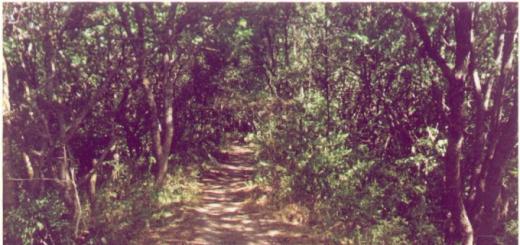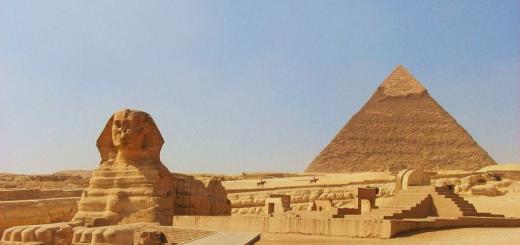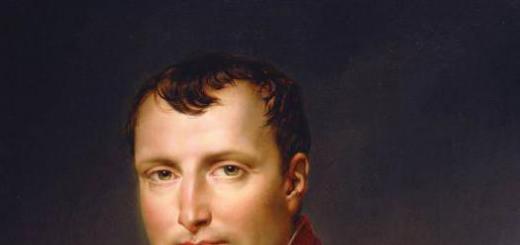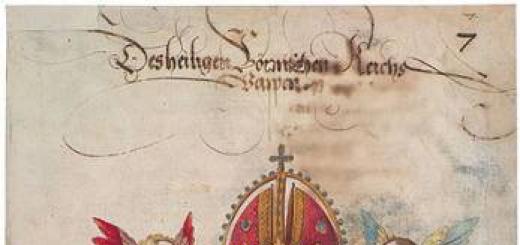Herodotus of Halicarnassus (484-425 BC) - ancient Greek historian, one of the first famous travelers. It was he who was the author of the first treatise "History", which has come down to posterity. In it, the scientist described the customs and traditions of the peoples who lived several centuries before our era. Little is known about the biography of Herodotus. The available information was drawn from the texts of the historian and the encyclopedia "Court", published in Byzantium of the 20th century. Some of the data differ, but there are also general information about the life of a traveller. About him personal life Scientists have not been able to find anything.
Exile and travel
Herodotus was born in Halicarnassus, a colonial settlement near Greece. Now there is a resort town of Bodrum, and in 484 BC. Ionians and Dorians lived in the territory. The most famous work of the historian was written in the Ionian dialect.
The future scientist had wealthy parents, he received an excellent education. In his youth, he took an active part in the political life of the city. Together with his fellow citizens, he tried to overthrow the tyrant Ligdamid from the throne. For this, the young man was punished, he had to leave the city. In 446, he left his native settlement forever.
After the exile, Halicarnassus settled on the island of Samos. There he began to prepare for a journey through all the nearby territories accessible to man. The young man always dreamed of seeing the world with his own eyes, to form his own opinion, not limited to data from textbooks.
When he was 20 years old, Herodotus went to explore the Egyptian territories. He watched the life of the people, clarified important information about the pyramids and the floods of the Nile. From the records made in that period of time, the world historical chronicle began. From Egypt the historian descended to Gibraltar, then to Alexandria and Arabia. He strove to always be near the ocean in order to easily find his way back.
IN Saudi Arabia the scientist spent quite a bit of time. Perhaps this is due to the excessive religiosity of its population. From the Arabian Peninsula, Herodotus went to Babylon, then he visited Persia, reached India. Later, in his essay, he described the customs of this country, recognized its power and equal forces.
Halicarnassus spent almost 11 years traveling. He explored Phoenicia, Syria, Macedonia, even reached Scythia. On South modern Russia historian spent a lot of time. He drew maps of three seas - the Black, Azov and Caspian, and also depicted the rivers flowing into them.
Moving to Athens
At the end of his large-scale journey, Halicarnassus began to study the traditions of the Scythians. In his writings, he talked about the tribe of the Amazons, about which there are disputes among scientists. Herodotus mentioned warlike women who lived in marriage with the leaders of the Scythian tribes.
Around 446, the historian settled in Athens. At that time he was 40 years old, Herodotus enjoyed the gratitude of influential people. He quoted passages from the "History" to the elite of society, became close to the supporters of Pericles. Halicarnassus supported democratic views. He also participated in the restoration of some destroyed settlements.
According to historians, Herodotus died in 426 BC. At that time he lived in the colony of Thurium, located on the territory of modern Italy.
Scientific achievements
"History" of Herodotus gave food for thought to future generations. It combines several components at once:

- Geographic data on states - location, relief, climate features;
- Ethnographic research - this work contains a lot of information about the population of ancient countries, their traditions and customs;
- Detailed description historical events, which the scientist saw with his own eyes;
- Artistic value - the historian was also a talented writer, his writing was easy to read, exciting and eventful.
Some contemporaries criticized Halicarnassus for his simple manner of presentation. He described his impressions and observations without scientific formulations, he simply shared his knowledge.
It is very important to correctly realize the task of Herodotus. He did not want to travel only for military purposes, like his compatriots. The young man was interested different people, their customs and peculiarities. He believed that the gods could interfere in the lives of mortals. At the same time, the scientist did not deny the importance of the personal qualities of politicians and ordinary people.
Halicarnassus strove to learn and remember as much as possible, which is why he kept his notes so scrupulously. It is noteworthy that the historian already then visited the countries most popular for tourists in our time - Egypt, Turkey and India.
Hello to all readers! From this article about Herodotus, you will learn about who he was, where he traveled and what discoveries he made. Read the article and find out all its secrets...
Herodotus (about 480 - about 428 BC) - an outstanding Greek geographer, historian and traveler of antiquity.
He was born in the city of Halicarnassus, on the coast of Asia Minor. He lived in the era when Greece was at war with Persia. Herodotus decided to write a history of the Greco-Persian wars.
And to tell in this story about the life and nature of the population in the countries that at that time were under the rule of Persia. In 460 - 450 years. BC e. Herodotus traveled.
He visited the countries of the Balkan Peninsula and cities on the Malaya coast. to Scythia, southern region, Herodotus made a long journey.
Despite the fact that the Greeks traded with Scythia, it was little known to them before Herodotus. Scythia surprised the scientist with huge pastures and plains.
The Scythian winter, lasting several months, seemed harsh to him. He wrote that the water spilled in Scythia in winter does not make mud, that is, it freezes. The summer seemed to him cold and rainy.
 The huge rivers of Scythia impressed Herodotus - Borisfen (Dnepr), Tanais (Don), Gipanis (Southern Bug) and others.
The fact that rivers originate in the mountains, Herodotus knew from childhood, but there are no mountains in Scythia.
The huge rivers of Scythia impressed Herodotus - Borisfen (Dnepr), Tanais (Don), Gipanis (Southern Bug) and others.
The fact that rivers originate in the mountains, Herodotus knew from childhood, but there are no mountains in Scythia.
These rivers, in his opinion, should have started in unknown large lakes. The tribes inhabiting Scythia and its neighboring territories were of particular interest to Herodotus. The Scythians, living in the steppe and partially forest-steppe zones, were divided into pastoralists and farmers.
About the peoples who lived in the northeast and north of the Scythians, Herodotus collected very interesting, sometimes even semi-fantastic statements.
He learned about the hunters, the Tessagetes and Irks, who inhabited the "stony and uneven land" (in all likelihood, this is near the Urals), and about dense forests inhabited by otters, beavers and other fur-bearing animals. Further, the Agripei tribes lived, near the foot of the high and inaccessible.
They had a flat face with a large chin and shaven heads. Herodotus learned that the settlements of the Arimaspians, one-eyed people, were even further away.
There is a lot of gold, but the vultures guard it. Vultures are lion-like monsters with eagle beaks and wings. Behind Scythia in the Far North, there are uninhabited lands. It is very cold there, it constantly lies, and the night stays for half a year.
Herodotus went to the Black Sea coast of the Caucasus from Scythia. He learned from the inhabitants of Colchis that there is a huge sea (Caspian) beyond the mountains, and beyond the sea - a wide plain. Masagets live there - warlike tribes.
Before Herodotus, the Greeks represented the Caspian as a flood, and did not know what was further east. After Herodotus returned home, after a while he again set off on a new journey. This journey was to the Mesopotamian lowland and to the hinterland of the peninsula of Asia Minor.
Herodotus described Babylon with its luxurious terraced gardens, a huge library and large stone steras. About "the most remote of the Eastern countries", Herodotus learned a lot in Babylon.
He was told that a lot of gold was mined in India. And also about the fact that there are still many amazing plants in India: cereal, the grains of which are “boiled and eaten together with the shell” (rice), cane, bamboo, from one knee of which, it seems like you can make a boat; trees with fruits in the form of a ball of wool - from it the inhabitants of India make clothes for themselves.
Herodotus spent a lot of time in Egypt. He visited the famous Sphinx and pyramids, in local cities, climbed the Nile to Siena (modern Aswan).
Herodotus also singled out the features of the nature of Egypt: the absence of rain and cloudiness, the flood and rise of the Nile water in the hottest time of the year, animals unknown in Asia Minor and Greece (hippos, crocodiles, birds, fish).
The cities of Northern Libya (Africa), Herodotus visited after Egypt. There he collected interesting information about the inhabitants of the oases in the desert zone and about the inhabitants of the northern part of the African continent.
That's all, it was the most interesting thing in the life of an ancient Greek scientist. Check back for new articles😉
The works of Herodotus played an important role in the development of ancient culture. In them, Herodotus described in detail the customs of the peoples that existed in the 5th century BC, as well as the course of the Greco-Persian wars.
Herodotus, nicknamed the "father of history", is one of the first travel scientists. To write his famous "History" he traveled all the famous countries of his time: Greece, South Italy, Asia Minor, Egypt, Babylonia, Persia, visited most of the islands of the Mediterranean Sea, visited the Black Sea, the Crimea (up to Chersonesos) and the country of the Scythians . He is the author of works devoted to the description of the Greco-Persian wars, outlining the history of the state of the Achaemenids, Egypt, etc., gave the first description of the life and way of life of the Scythians.
Herodotus is called the father of history. It would be no less fair to call him the father of geography. In the famous "History" he presented to his readers the entire Old World - known, unknown, and sometimes fictional - all three of the old countries of the world that he knew. He writes: "However, I do not understand why three different names are given to the single earth." The three names are Europe, Asia and Libya meaning Africa.
Traveling around the world, the scientist refuted the idea of the Greeks that the earth is disk-shaped, rises along the edges, and deepens towards the middle. Having read the works on geography and history written by the Greek Herodotus, one cannot overestimate his great contribution to science!
Herodotus - a scientist - a traveler is called one of the main pioneers of his time. He collected the available knowledge about the world in one work, presented his contemporaries and followers with descriptions of many tribes, their way of life, and customs.

From the biography of Herodotus:
We have come down to two key sources of information about life path Herodotus: an encyclopedia of the Judgment, created in the second half of the tenth century in Byzantium, and the texts of the historian himself. But some data in these sources are contradictory.
Herodotus was born around 484 BC in the Asia Minor city of Halicarnassus (however, this information is unverified, and no one knows the exact date of his birth). It is only known for sure that he was born in the interval between the Persian wars. He came from a wealthy and noble family with extensive trading connections.
The future ancient Greek historian was born into an influential and wealthy Lix family. In his youth, Herodotus participated in the political life of the people. He joined the party, which aimed to overthrow the tyrannical ruler Ligdamid, was expelled, lived for some time on the island of Samos.
A boy born in Halicarnassus, from childhood, watched how ships from distant lands come and go to the port. Most likely, this gave rise to a passion for uncharted lands, travel and discovery in him.
In his younger years, he had to leave his small homeland because of the struggle against tyranny, which nevertheless was established here. After living a little in Samos, in 464 the traveler Herodotus sets off on his long journey, geographical discoveries which will make a huge contribution to science.
In 464, he sets off on long and numerous journeys. Herodotus dreams of learning about other, much more powerful peoples, some of which had a civilization much older than the Greeks. He, in addition, is occupied by the diversity and outlandishness of the customs of a foreign world. It was this that prompted him to study the history of the Persian wars, to conduct an extensive study of all the peoples who attacked Greece, about which the Greeks at that time still knew little.
He traveled to Egypt, Babylon, Asia Minor, Assyria, the Northern Black Sea region, the Hellespont, and also traveled around the Balkan Peninsula from Macedonia to the Peloponnese. During his travels, the historian made sketches for his subsequent creation.
At the age of forty, Herodotus settled in Athens. At that time, he was already reading excerpts from his History to representatives of the upper strata of urban society, which gave the researchers the opportunity to conclude that the outlines were written while traveling. In Athens, the historian met and became close friends with the supporters of Pericles, the commander and orator, who is considered one of the founders of democracy in Athens. In 444 BC, when the Greek colony of Thurii was founded on the site of the destroyed city of Sybaris, he took part in the restoration of the settlement from the ruins.
Returning as a young man to his homeland, to Halicarnassus, the famous traveler took part in the popular movement against the tyrant Lygdamis and contributed to his overthrow. In 444 BC, Herodotus attended the Panathenaic festivals and read passages from the description of his travels there, causing general delight.
The biography of Herodotus has survived to this day only in the form of fragmentary information, in which it is impossible to find data about the scientist’s own family, about whether he had a wife and children. It is only known that the historian was an inquisitive and sociable person, he easily got along with people and was able to show amazing perseverance in the search for historically reliable facts.
At the end of his life, he retired to Italy, to Thurium, where he allegedly died in 425 BC, leaving behind the fame of a famous traveler and an even more famous historian. Herodotus left a lot of information about the Egyptians, Phoenicians and other peoples. The place of his burial is unknown.

Herodotus' contribution to science:
Thanks to Herodotus, science was enriched by the fundamental work "History". This book cannot be called a historical study. It is an interesting story of an inquisitive, sociable, gifted man who had traveled to many places and had extensive knowledge of his contemporaries.
The "History" of Herodotus combines several components at once:
1) Ethnographic data:
The historian has collected an impressive amount of information about the traditions, customs, features of life of various tribes and peoples.
2) Geographic information:
Thanks to the "History" it became possible to restore the outlines of the ancient states as of the fifth century BC.
3) Natural history materials:
Herodotus included in the book data on historical events that he managed to witness.

Book "History" of Herodotus
In total, the work of Herodotus includes nine books.
The essay is divided into two parts:
1) In the first part, the author talks about Scythia, Assyria, Libya, Egypt, Babylonia and a number of other states of that time, as well as about the rise of the Persian kingdom. Since in the second half of the work the author intended to tell a story about numerous Greco-Persian wars, in the first part he sought to trace the milestones of the historical struggle between the Hellenes and the barbarians. Due to the desire for such unity, the interconnectedness of the presentation, Herodotus did not include in the work all the materials that he remembered from his travels, but managed with a limited number of them. In his work, he often expresses a subjective point of view on certain historical realities.
2) The second part of the work of Herodotus is a chronological story about the military confrontation between the Persians and the Greeks. The story ends in 479 BC, when Athenian troops besieged and took the Persian city of Sesta. + When writing his book, Herodotus paid attention to the whims of fate and the envy of divine forces in relation to the happiness of people. The author believed that the gods constantly intervene in the natural course of historical events. He recognized the fact that the personal qualities of politicians are also the key to their success.
Herodotus condemned the rulers of Persia for their impudence, for their desire to violate the existing order of the world order, according to which the Persians should live in Asia, and the Hellenes in Europe. In 500 BC, the Ionian uprising took place, because of which Ancient Greece was involved in a bloody war. The author characterizes this event as a manifestation of pride and extreme indiscretion.
The structure of the "History" of Herodotus:
Book One - Clio
It tells about the beginning of the strife between the barbarians and the Hellenes, provides the history of the ancient country of Lydia, the story of the Athenian politician and sage Solon, the tyrant Peisistratus, the history of Media and Sparta. In this book, Herodotus also mentions the Scythians in the context of the confrontation with the Cimmerians, and also talks about the war between the Massagetae and the Persians.
Book Two - "Euterpe"
In this part of the work, the historian decided to tell about the history of Libya and Egypt, about the Pygmies and Nasamones, about the ancient Egyptian pharaohs. Here Herodotus recounted the legend of how Psammetichus I determined that the Phrygians were the oldest people in the world.
Book three - "Thalia"
It provides information about Arabia and India, about the Greek tyrant Polycrates, and also tells about the conquest of Egypt. Persian king Cambyses, about the uprising of the Magi, the conspiracy of the seven, and the anti-Persian uprising that took place in Babylon.
Book Four - "Melpomene"
Book Five - "Terpsichore"
In this book, the emphasis is already on the events of the Greco-Persian wars. If in previous volumes the author devoted many pages to describing the ethnographic features of the peoples, then here he talks about the Persians in Macedonia, about the Ionian uprising, about the coming of the Persian governor Aristagoras to Athens and the Athenian wars.
Book Six - "Erato"
The key events from those described are the naval battle "Battle of Lada", the capture of the Carian ancient Greek city Miletus, the campaign of the Persian commander Mardonius, the campaign of the Persian commanders Artafren and Datis.
The seventh book is "Polyhymnia".
In her we are talking about the death of Darius and the ascension of Xerxes (Darius and Xerxes were Persian kings), about Xerxes' attempts to conquer Asia and Europe, as well as about the iconic battle of the Persians and Greeks in the Thermopylae Gorge.
Book Eight - "Urania"
This material describes the naval battle of Artemisia, the naval battle of Salamis, the flight of Xerxes, and the arrival of Alexander in Athens.
Book Nine - "Calliope"
In the final part of the monumental work, the author decided to tell about the preparation and course of the battle of Plataea (one of the largest battles of the Greco-Persian wars, which took place on land), the battle of Merkala, as a result of which the Persian army was inflicted a crushing defeat, and the siege of Sest.
The “History” of this ancient Greek thinker is also called “The Muses”, since Alexandrian scientists decided to name each of its nine parts after one of the Muses. Nine Muses named the volumes of Herodotus' History
In the process of work, Herodotus used not only his own memories and his own attitude to events, but was also guided by the memories of eyewitnesses, records of oracles, and inscription materials. In order to reconstruct each battle as accurately as possible, he specially visited the battlefields. Being a supporter of Pericles, he often sings of the merits of his family.
Despite the belief in divine intervention, the subjective approach and the limited means for obtaining information in antiquity, the author did not reduce his entire work to glorifying the battle of the Greeks for their freedom. He also tried to determine the causes and consequences of their victories or defeats. "History" of Herodotus became an important milestone in the development of world historiography. + The success of the historian's work is due not only to the fact that in one work he collected many facts about the peoples and events of his time. He also demonstrated the high skill of the storyteller, bringing his "History" closer to the epic and making it an exciting reading for both contemporaries and people of the New Age. Most of the facts stated by him in the book were subsequently proven during archaeological excavations.

Interesting facts from the life of Herodotus:
1. He is the first to discover the female mythical epic of the Amazons.
2. The historian explored in some detail (travelling) many regions of Asia Minor, Asia Minor, the islands of the Aegean Sea, the island of Crete and the coast of Syria, Phoenicia, Macedonia, Egypt, Thrace, most of Greece, South Italy, Peloponnese, Sicily, the Black Sea coast.
3. Great thinker and writer ancient rome Cicero once called Herodotus "the father of history". Since then it has been called that.
4. But it is worth noting that Herodotus can rightly be called the "father" of a whole list of other sciences. Among them - ethnography and geography especially, historical geography.
5. Herodotus took part in the founding of a pan-Greek colony in southern Italy - Furia.
6. He closely communicated with the sculptor Phidias, Pericles, the playwright Sophocles, the philosopher Anaxagoras.
7. In his youth he was expelled from the city where he lived.
8. The historian firmly believed in the existence of Rock and the gods.
9. He wrote his work "History" in the Ionian dialect. The main idea is the confrontation between ancient Greek democracy and Asian despotism.
10. Herodotus initiated travel.
11. He took part in the popular movement against the tyrant Lygdamis and was for his overthrow.
12. Herodotus identified 3 climatic zones: the northern (in Scythia), the second, located in the Mediterranean, and the third - part North Africa and Arabia.
13. He is considered the first person to circumnavigate the entire Earth.
14. After Herodotus, the American Nellie Bye made an attempt to bypass the earth only in 1889. And she did it in 72 days.
15. A large number of facts from the "History" of Herodotus were confirmed during archaeological excavations.

Quotes, sayings, aphorisms of Herodotus:
* Since ancient times, people have wise and beautiful sayings; we should learn from them.
*If opposing opinions are not expressed, then there is nothing to choose the best from.
* In peacetime, sons bury their fathers, and in wartime, fathers bury their sons.
* If all people once brought all their sins and vices to the market, then everyone, having seen the vices of a neighbor, would gladly take their own home.
* People who decide to act usually have good luck on the contrary, they rarely work out for people who are only concerned with weighing and procrastinating.
*True courageous man must show timidity at the time when something is decided, must weigh all the chances, but in execution it is necessary to be courageous.
* Do not correct trouble with trouble.
*No one can be so crazy as to want war instead of peace, because when there is peace, then children bury their fathers, and when there is war, then fathers bury their children.
*Slander is terrible because one is the victim of its injustice, and two are doing this injustice: the one who spreads slander and the one who believes it.
* Circumstances rule people, not people rule circumstances.
* If all peoples in the world were allowed to choose the best of all customs and mores, then each people, having carefully examined them, would choose their own.
* Women, along with clothes, take off shame from themselves.
*Death is a delightful hiding place for weary people.
*It is better to be an object of envy than compassion.
*Usually people dream about what they think about during the day. *People's ears are more incredulous than their eyes.
*I am obliged to convey everything that is told to me, but I am not obliged to believe everything.
*Call no one happy until he is dead.
In the middle of the 5th century BC e. The Greco-Persian Wars ended. Having suffered several heavy defeats, the Persians abandoned military operations and switched to waiting tactics. And in Greece itself, the time has come for an extraordinary upsurge. The economy developed rapidly, trade relations with neighbors, science and culture reached an amazing flourishing. It was the so-called classical period Ancient Greece when the playwrights Aeschylus, Sophocles and Euripides, the philosophers Anaxagoras, Democritus, Protagoras and Socrates worked. And the Halicarnassian Herodotus went on a long journey, the result of which was the monumental work "History", which includes a lot of information about the nature and population of the countries he saw.
Very little is known about the life of Herodotus. He was born around 484 BC. e. in the Carian city of Halicarnassus, on the southwestern coast of Asia Minor (now Bodrum in Turkey), belonged to a noble wealthy family, received a good education. In his youth, Herodotus took part in the struggle of the aristocracy against the Halicarnassian tyrant Ligdamida, however, after the conspiracy was revealed, he left native city and moved to the island of Samos.

From here he began his wanderings. At that time, it was mainly merchants who traveled around. One can only guess how Herodotus traveled: he either traveled with merchants, or, quite likely, he was a merchant himself. In any case, all the questions that should occupy the merchant: routes, distances, colonies, units of measures and weights - he was keenly interested. He began his journey from the Greek cities of Asia Minor, continued in the Balkans, and then went to the Black Sea colony of Olbia, founded by immigrants from Miletus, located at the mouth of the Gipanis (Southern Bug). Here Herodotus lived for some time, studying the mysterious Scythia. He made several voyages up the Gipanis to the area that the Scythians called Exampey (Sacred Ways), visited the forests of Borisfen (Dnieper).
Herodotus describes Scythia as a flat, treeless country with a cold climate but excellent pastures. The traveler, who was born in arid Asia Minor, was greatly impressed by the full-flowing rivers Borisfen and Tanais (Don). Herodotus was also engaged in ethnographic research, collecting all kinds of information about the lifestyle and customs of the Scythians. The scientist divided the Scythian people into three large tribes. These were farmers, nomads and "Royal Scythians" - the strongest tribe that occupied the territory from the Crimea to the Don and considered "other Scythians to be subject to themselves."
Herodotus was keenly interested in the lands that lay to the north and east of Scythia. The main source of information for him was the Greek colonists and the Scythians themselves. From them he heard both quite reliable information and fantastic legends. In any case, what concerned the territory from Scythia to Ural mountains, was the truth. Herodotus learned about the dense forests growing there, teeming with fur-bearing animals, about the tribes of the Iirks and Savromats, about the Argippeans living at the foot of high mountains, in which “both men and women are bald from birth (in fact, they shaved their heads. - Approx. ed. .), flat-nosed and with wide chins. And about the Far North, where there is a pitch night for half a year and there is always snow. But the traveler was also told about neurons that turn into wolves for several days a year, and about red-haired blue-eyed boudins eating cones, and about one-eyed arimaspas living in distant lands full of gold guarded by griffins. Herodotus conscientiously wrote down everything: in those days they believed in miracles no less than now.
From Scythia, Herodotus went to the southern coast of the Euxine Pontus (Black Sea), to the Sinop Bay, and from there to the east - to Colchis (South-Eastern Black Sea), to the colony of Phasis. Herodotus was surprised to see dark-skinned people with curly hair among the inhabitants of Colchis. He was told that these were the descendants of the Egyptians who sailed a very long time ago on the ship of one of the pharaohs. The Colchians, who were once robbed by Herodotus's compatriot Jason the Argonaut, did not remember evil and shared many useful information with the inquisitive traveler. For example, about the fact that the Caucasus Mountains, the peaks of which he saw from the ship, are the highest in the world; about what Caucasus mountains there is the Caspian Sea, and behind it live the militant Massagets, who make their weapons from copper and gold - not because they are so rich, but because they have no iron.
Herodotus was most interested in information about the Caspian Sea. After all, he, like all learned Greeks, naively believed that the Caspian was a gulf of the ocean. Later, during his journey to Persia, to the capital city of Susa, Herodotus met people who had been to the Caspian Sea, and learned from them that it was in fact a huge enclosed reservoir.
Returning home, Herodotus systematized the collected materials, rested and set off again - through Asia Minor and Mesopotamia. He also visited Africa: first in Egypt, where he climbed up the Nile, then on the territory of modern Libya - not only on the coast, but also in the desert. In addition, he traveled to Cyprus, Thrace and Macedonia. And then he wrote "History" - nine books, on the pages of which he spoke about the Greco-Persian wars, about the nature of the countries surrounding Greece and Persia, about the peoples living in these countries, and about their customs. Having explored most of the ecumene (the world known to the ancient Greeks) and learned from the words of his interlocutors about its outskirts, Herodotus presented his own vision of the world to readers. Based on information about the journey of the Phoenicians around Libya (Africa), Herodotus rightly concluded that the latter is surrounded by the ocean on all sides, "except the place where it adjoins Asia." He was the first to correctly determine the status of the Caspian, calling it an inland body of water (the Hyrcanian Sea). True, Herodotus underestimated its size, and besides, it gave it an elongation in latitude. The northern and eastern borders of Europe were unknown to the Greeks.
There are in the representations of Herodotus and quite funny from a modern point of view errors. Thus, he considered Europe equal in length to Asia and Africa combined. Africa, on the other hand, is several times smaller than it actually is. Perhaps, if he had imagined its true size, he would hardly have believed that the Phoenicians managed to bypass the mainland. The Nile and the Danube at Herodotus flow parallel to each other - from west to east. Meotida (Sea of Azov) seemed to the historian almost as big as the Black Sea. However, many of these mistakes are quite forgivable. Let us recall that the Alexandrian geographer and astronomer Claudius Ptolemy, who lived much later and had much more extensive information than Herodotus, believed that Indian Ocean surrounded on all sides by land - Africa and Asia. And that this mistake delayed the opening of the sea route to India by 1,500 years. It is traditionally believed that the main goal of Herodotus was to convey to the descendants the details great war: allegedly for this he undertook a grandiose trip "to places of military glory." However, in Lately more and more often one can hear the opinion that the description of the war is just a technique that allowed the author to combine materials that are completely different on the topic, to “glue” them into one single narrative.
"History" was enthusiastically received by contemporaries of Herodotus. But not everyone. He is called the father of history (and also of geography and ethnography), but few people remember that Cicero gave the nickname, and in this context: “Herodotus, the father of history ... you can find countless fictions.” They agreed to the point that Herodotus was called the father of lies. Many still treat the great Greek not as an objective researcher, but as a fiction writer.
The "History" describes the entire Old World - known, unknown, and sometimes fantastic. It must be taken into account that Herodotus was in many ways a prisoner of myths, and in this sense he occupies a place between Homer and rationalist scientists. full rights characters his writings are gods and heroes. He, perhaps, sincerely believed that the footprint he measured on a rock in the Dniester valley belonged to Hercules. As a real event, he wrote about the abduction by the Phoenicians of the goddess Io - by the way, the girlfriend of Zeus. Everything that was on the edge of the ecumene or simply went beyond the understanding of Herodotus, he explained with the help of myth.
Many of the historian's mistakes are most likely due to inattention. Often the confusion is caused by contradictions in the information given to him by his interlocutors. Herodotus himself sometimes admitted that he could not get reliable information. So, for example, about the lands lying to the north of Scythia (in our middle zone), he wrote: “No one knows anything definite about the regions north of the country from which I began this story ...
However, I will tell exactly and in as much detail as possible everything that I, albeit by hearsay, had a chance to learn about these northern countries. Sometimes, making the appropriate reservation, he recounted stories in which he himself did not believe. Oddly enough, later archaeological finds and ethnographic studies have confirmed that many of these "absurd" stories are true.
NUMBERS AND FACTS
Main character: Herodotus
Action time: The middle of the 5th century. BC e.
Route: From the Greek cities of Asia Minor to Eastern Europe and the southeastern Black Sea region, and then through Asia Minor, Mesopotamia and North Africa
Purpose: A story about the Greco-Persian wars, about the nature of the countries surrounding Greece and Persia, their peoples and customs
Meaning: A description of everything known to the ancient Greeks of the world (oikoumene)
HERODOTUS(lat. Herodotus, Greek Herodotus) (about 484 BC, Halicarnassus, Asia Minor - about 426 BC, Furia, Great Greece), an ancient Greek historian, called by Cicero the "father of history" ("On the Laws", I,1,5 ). Author of works devoted to the description of the Greco-Persian wars, outlining the history of the state of the Achaemenids, Egypt; gave the first systematic description of the life and way of life of the Scythians. The monumental work of Herodotus, dedicated to the history of the Greco-Persian wars and the description of the countries and peoples who fought with the Persians, is the first historical work of antiquity that has completely come down to us and at the same time the first in history ancient literature monument fiction. Initially, it was called "History" (ancient Greek "research, research"); in the 3rd century BC Alexandrian scholars divided it into nine books, giving each of them the name of one of the nine muses - the first book was named after the muse of history, Clio.
According to Dionysius of Halicarnassus, Herodotus was born shortly before the campaign of Xerxes in Greece (480 BC) and lived until the Peloponnesian War (431 BC). His parents were noble and wealthy citizens. For participation in the struggle against the tyrant Halicarnassus Ligdamida, Herodotus was forced to leave his homeland and settled on the island of Samos. Tradition ascribes to Herodotus long travels in the countries of the East: in 455-444 he visited Phoenicia, Syria, Egypt, Babylon, Macedonia, the Greek colony of Olbia in the Northern Black Sea region, and visited Delphi. He describes as an eyewitness the peculiarities of the climate of Scythia, which is more severe than in Greece, he knows the layout of Babylon and the way in which its walls were erected; Herodotus gives data on the distances between Egyptian cities in the Nile Valley and tells in detail about the Egyptian customs that struck him.
Since the mid-440s, the fate of Herodotus has been closely connected with Athens and the circle of Pericles. It is known that in Athens Herodotus gave public readings of individual books of the History and was awarded for this by the Athenians (Eusebius, 4th century). A hidden polemic with Herodotus can be found in his younger contemporary Thucydides, who emphasizes that his own work is alien to fables, not so pleasant to the ear and not created to sound in a fleeting competition (Thucydides, "History", I, 22).
In 444-443, Herodotus, together with the philosopher Protagoras of Abdera and the architect Hippodames of Miletus, took part in the foundation of the pan-Greek colony of Thurii in southern Italy (hence his nickname Furian). The "History" breaks off with a description of the siege of Sest (478) and gives the impression of being unfinished; based on her textual analysis, it is generally accepted that Herodotus died in Thurii between 430 and 424.
Herodotus wrote the work "History" or "Statement of Events" in the Ionian dialect. The main idea that he traces in this work is the opposition of Asian despotism and ancient Greek democracy. The Greco-Persian wars became the central theme of the "History", but in the course of the presentation of events, the historian introduced detailed geographical and ethnographic essays, the so-called logoi.
Herodotus begins the story with a story about the fate of the Lydian kingdom and proceeds to the history of Media before the accession of Cyrus, in connection with the campaigns of Cyrus, describes Babylon and the customs of its inhabitants, as well as the tribe of the Masagetes who lived across the river Arax (book 1). The history of the conquest of Egypt by Cambyses gives him a reason to tell about this country: this is how the famous Egyptian logos is formed (book 2, Euterpe); the story of Darius' unsuccessful campaign against the Scythians develops into a description of the way of life and traditions of the tribes that inhabited the Black Sea steppes (book 6, Melpomene).
Such descriptions of individual localities and peoples bring the "History" closer to the works of Ionian logographers and, in particular, to the works of Hecateus of Miletus, to whom Herodotus repeatedly refers. However, unlike logographs, Herodotus includes episodes-novellas in the canvas of the historical narrative that are close to those that existed among the eastern peoples. oral tradition and telling about dramatic turns in the events of history and the fate of people: stories about Gyges and King Kandavl (book 1, 8-13), about Solon and Croesus (book 1, 29-56), about Cyrus and Astyages (book 1, 108- 129), about the ring of Polycrates (book 3, 40-43). Belief in the omnipotence of fate, the breadth of the historical and spatial perspective, the slowness of the narrative give the "History" an epic character: in the treatise "On the Sublime" (Pseudolonginus, 1st century), Herodotus was called "the great imitator of Homer."
The work of Herodotus is permeated by the theme of the inconstancy of fate and the envy of the deity to the happiness of people. Like Aeschylus in the tragedy The Persians, Herodotus condemns Persian kings for excessive insolence and the desire to disrupt the world order, which commanded the Persians to live in Asia, and the Hellenes in Europe. Ionian revolt 500 BC e., which involved the Greek states in a long and bloody war, Herodotus considers it a manifestation of indiscretion and pride. When describing the Greco-Persian wars, Herodotus uses the memories of eyewitnesses, inscription materials, oracle records; he visits the battlefields in order to more accurately reconstruct the course of the battles. Repeatedly he notes the merits of the Alkmeonid clan, to which he belonged.
The goal of the scientist was not only to sing the exploits of the Greeks in the struggle for freedom, but also to reveal the causes and consequences of their victories. Herodotus believed in the active intervention of the gods in the course of historical events, but at the same time he recognized that the success of politicians depended on their personal qualities. When writing his work, Herodotus used both personal observations and stories of other people, and written sources. His descriptions are reliable and in many cases are confirmed by modern archaeological research.
The success of the work of Herodotus in ancient times was facilitated by his art of storytelling, the proximity of his "History to the epic". The surviving numerous Greek manuscripts from the 10th to 15th centuries reflect an unbroken handwritten tradition dating back to antique editions of the text. During the Renaissance, Lorenzo Valla translated the "History" into Latin language(Venice, 1479). Russian translations of Herodotus were published with comments by F. G. Mishchenko in 1888 and G. A. Stratanovsky in 1972. For modern scientists, "History" is an invaluable source of encyclopedic information about the history of ancient countries.










